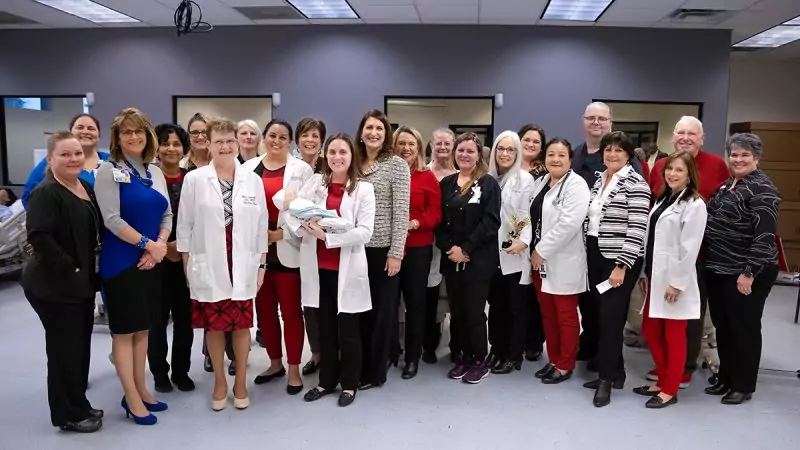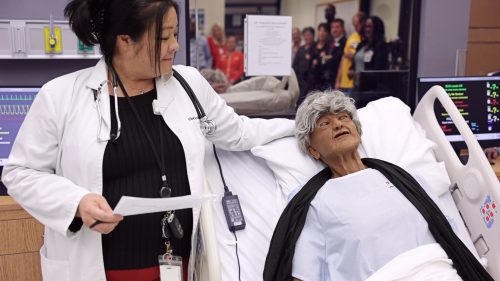Center for Human Simulation brings Polk State Health Sciences to forefront

Through significant investment, including grant funding, Polk State College took another big step toward meeting workforce demand, primarily in health sciences, with the Nov. 18 grand opening of the Center for Human Simulation.
The Center spans multiple campuses to allow Polk State students exposure to real-life clinical scenarios as they build confidence even before beginning clinicals. The state-of-the-art Center will advance role performance and will involve training with other health professionals. The Center provides students with the ability to practice their techniques while interacting with simulated patients and families in spaces that emulate the actual clinical environment.
“Our College is dedicated to providing world-class education and training in the health sciences, as Polk State is the leading workforce pipeline for our community’s healthcare providers,” Dr. Angela Garcia Falconetti, President of Polk State College. “The Center for Human Simulation will enhance the training experience for students and further prepare them for success in our local hospitals.”
“We treat the Center as a true clinical space,” said Dr. Michael Bleich, Polk State’s Interim Dean of Nursing. “With new simulators, we can expand to more far-reaching scenarios that cross the lifespan, including complications of childbirth, trauma, home care, and other complex dynamics that involve families. Nurses engage in high-stakes communication often at the hub of physician and other provider transactions with patients and families. We will place increased emphasis on communication and team interactions. Important is that even more emphasis will be on delivering patient and culturally sensitive care.”
The lab is made possible by the College’s investment of more than $2 million in new funds with the help of grants from the U.S. Department of Education Higher Education Emergency Relief Fund (HEERF) and the Florida Department of Education Prepping Institutions, Programs, Employers and Learners through Incentives for Nursing Education (PIPELINE). Similar technology is available at other colleges and universities, but the Center will be more comprehensive and strategic to meet emerging demands in healthcare.
“A center of this magnitude is often available only in larger universities. The Center will invest in advanced faculty development to explore enriched approaches to teaching and learning,” Bleich added. “Our goal is exceptional clinical preparation that is workforce ready. We hope to decrease the onboarding time once our graduates are hired. We want to share resources within the health professions programs at Polk State College and with our clinical partners.”

During the COVID-19 pandemic, simulation played a vital role in preparing health sciences students for the workforce at a time when access to clinical sites was limited. The added resources will ensure seamless education for any future crises.
“Polk State faculty are embracing the positive contributions of technology,” Bleich said. “I’m proud of the readiness of our faculty to expand technology advancements. This is more than being about equipment – it is about new frontiers in decision-science, artificial intelligence, personalized medicine, and exceptional communication and team skills. It is about professional competence and confidence. It is about partnerships between nursing and other health professions. We want to be the premier Florida college in using simulation and technology-based learning. In the end, it is about the care that we will receive when ill, helping people recover, and promoting health.”

